Planning your next getaway should be exciting, not a minefield of potential scams. Unfortunately, the surge in online travel bookings has created a paradise for fraudsters who’ve gotten incredibly good at mimicking legitimate hotel websites and booking platforms. These criminals cost unsuspecting travelers billions of dollars every year through fake sites, hidden fees, and outright theft.
The scary part is how sophisticated these scams have become. Booking.com publicly acknowledged a surge in fraudulent activity, citing a 500% to 900% increase in scam attempts in recent years, many powered by AI tools that can create convincing fake websites in minutes. But don’t worry — once you know what to look for, these red flags become pretty obvious.
Here’s a list of 15 warning signs that should make you think twice before hitting that ‘book now’ button.
The website URL looks fishy

Real hotel websites have straightforward URLs that match the hotel’s actual name, but scammers love to create lookalike domains that are just slightly off. Scammers are pros at building fake lookalike websites to fool you into giving up your information.
Look closely at the URL to ensure you are on the hotel’s official website before entering any payment details. You might see something like ‘marriottreservations.com’ instead of the real ‘marriott.com’, or they’ll add extra words like ‘reservationdesk’ to make it seem official.
The best approach is to type the hotel’s name directly into your browser or go through the hotel chain’s main website rather than clicking on search results.
Missing HTTPS security
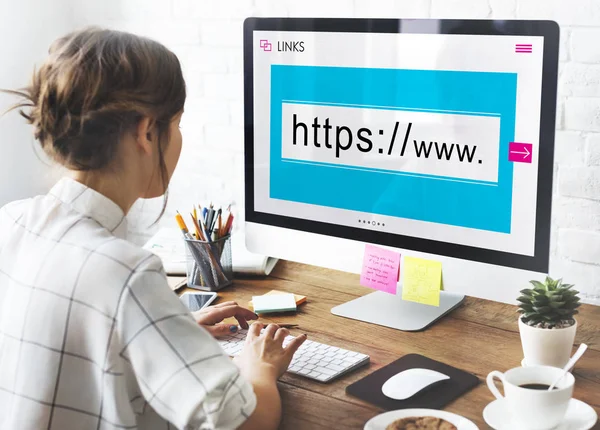
Any legitimate booking site should have “https://” at the beginning of the web address, along with a little padlock symbol in your browser’s address bar. You’ll also want to ensure websites and their payment pages are secure, meaning they start with “https://” and display a padlock symbol.
If a web page isn’t secure, don’t enter your personal information and close that tab immediately. This encryption protects your credit card information as it travels across the internet. If you see just ‘http://’ without the ‘s’, that’s a major red flag that your personal information could be intercepted by hackers.
Like Travel Pug’s content? Follow us on MSN.
They’re asking for weird payment methods

Legitimate hotels and booking platforms stick to standard payment methods like credit cards, but scammers often push for alternatives that are harder to trace or reverse. Be wary of sites or agents who ask for wire transfers, prepaid cards, or cryptocurrency payments.
These are big red flags because once you send money through these methods, it’s nearly impossible to get it back. Real hotels might ask for a credit card to hold your reservation, but they won’t demand payment through Cash App, Bitcoin, or asking you to buy gift cards.
If someone insists on these payment methods, you’re definitely dealing with a scammer.
The photos look too perfect or generic
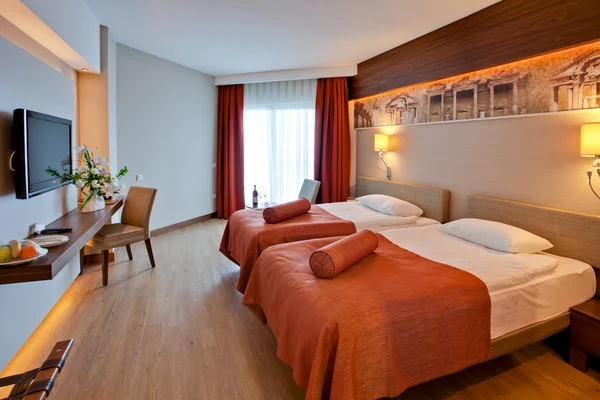
Professional scammers often steal high-quality photos from luxury hotels and use them for properties that don’t actually exist or look nothing like the pictures. If a hotel is displaying stock photos, unprofessionally shot pictures, or random images of breakfast trays, beware — legitimate hotels should show you what their property actually looks like.
You can do a reverse image search on Google by right-clicking on a photo and selecting ‘search image with Google’ to see if the same photo appears on multiple different hotel websites. Real hotels will have a variety of photos showing different angles, rooms, and amenities, not just a few perfect shots that look like they came from a magazine.
The price seems way too good to be true

While everyone loves a great deal, prices that are dramatically lower than surrounding hotels should raise immediate suspicion. Listings with prices significantly lower than the average for the area should raise a red flag. Verify such listings by checking reviews and contacting the property directly to confirm the rate is real.
Scammers use these ‘too good to be true’ prices as bait to lure people into their traps. Check what other hotels in the same area are charging for similar dates — if one place is half the price of everywhere else without a clear reason, there’s probably a catch.
Remember, legitimate hotels have operating costs and won’t sell rooms at a loss just to be nice.
Like Travel Pug’s content? Follow us on MSN.
No real guest reviews or only fake-sounding ones
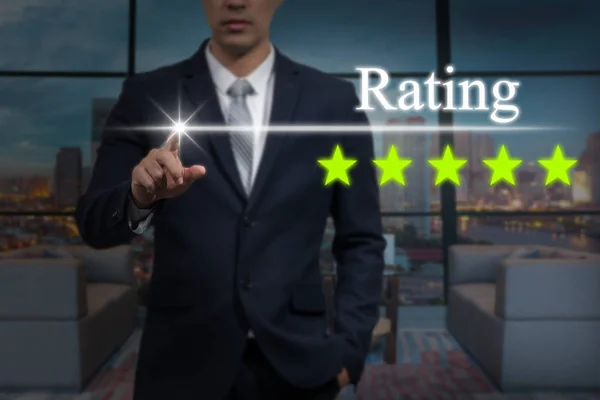
Authentic hotels accumulate genuine reviews over time from real guests who mention specific details about their stays. Look for reviews and ratings for the place, check if the price is roughly similar to those for ‘competing’ houses or apartments, and reverse-search the image to see what comes up to verify legitimacy.
Fake reviews tend to be generic, overly positive, and lack specific details about the actual experience. You might see reviews that all sound similar, were posted around the same time, or focus only on vague positives like ‘great location’ without mentioning anything concrete.
Check multiple review platforms, not just the booking site itself, and look for reviews that mention both positives and minor negatives — that’s usually a sign they’re genuine.
They contact you asking for additional payments

Once you’ve made a legitimate booking, the hotel shouldn’t be reaching out asking for extra payments through unofficial channels. Payment scams often involve scammers convincing travelers to make payments through unofficial channels.
The perpetrators typically contact guests via the platform’s messages or email, asking victims to complete payments using an alternative method outside the original booking platform. They might claim there was an error with your original payment or that they need to ‘verify’ your booking with additional funds.
Real hotels will handle any payment issues through the official booking platform or during check-in, not through random text messages or emails asking you to click suspicious links.
The cancellation policy is vague or missing

Legitimate hotels and booking sites provide clear, detailed cancellation policies that explain exactly when you can cancel and what fees might apply. Review the hotel’s cancellation policy carefully.
Scammers might not provide clear information on this, making it difficult to get a refund if something goes wrong. Scam sites often have confusing or deliberately vague cancellation terms, or they might claim everything is ‘non-refundable’ even for bookings made months in advance.
Real booking sites will clearly state whether you can cancel for free, what the deadline is, and exactly how much you’ll be charged if you need to change your plans. If you can’t easily find or understand the cancellation policy, that’s a warning sign.
Like Travel Pug’s content? Follow us on MSN.
The website has poor design or grammar mistakes

Professional hotels invest in quality websites because their online presence directly affects their business, but scammers often rush to create fake sites that have obvious flaws. It’s likely a scam website if there are typos, grammar errors, and overall poor website design throughout the booking process.
Look for misspelled words, awkward phrasing, broken links, or images that don’t load properly. Legitimate hotels also have consistent branding and professional layouts, while scam sites might have mismatched fonts, poor color choices, or sections that look like they were copied from different websites.
While a small family-run hotel might have a simpler website, it should still be functional and free of obvious errors.
You can’t reach them by phone
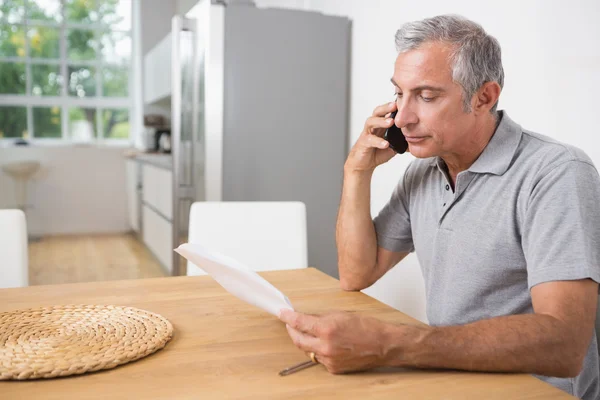
Real hotels have working phone numbers that connect you to actual staff members who can answer questions about your booking. Try to call a hotel to assess the professionalism, responsiveness, and expertise of the staff. If it takes a lot of time and navigating a complicated phone tree to reach a human, if they don’t seem to have basic phone etiquette, or if they are not polite and enthusiastic about answering your questions, that’s not a good sign, according to hospitality experts.
If the phone number goes to voicemail, rings endlessly, or connects you to people who seem confused about the hotel you’re asking about, be suspicious. Scammers often use fake phone numbers or route calls to people who aren’t actually associated with the property. A legitimate hotel should be able to confirm your booking details and answer basic questions about its amenities and policies.
Hidden fees appear after booking
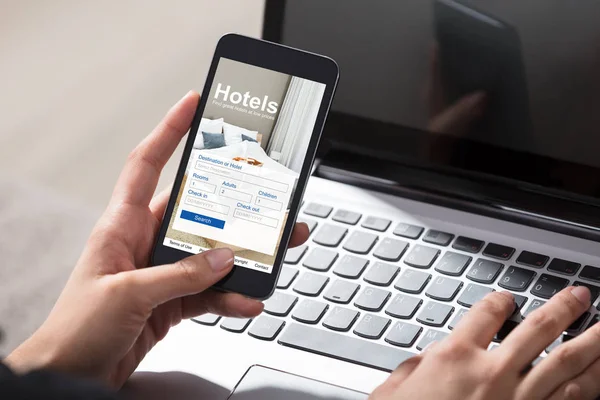
One of the most common scam tactics involves advertising one price but then charging significantly more through mysterious additional fees. When you review your credit card statement, you notice you’ve been charged a much higher rate than you agreed to pay during the booking process.
These might be labeled as ‘service fees,’ ‘processing charges,’ ‘resort fees,’ or ‘tax recovery charges’ that weren’t clearly disclosed upfront. While some legitimate hotels do charge resort fees, they should be transparently disclosed before you complete your booking.
If charges appear on your credit card that you didn’t authorize or weren’t clearly explained during booking, that’s a major red flag that you’ve been scammed.
Like Travel Pug’s content? Follow us on MSN.
They use urgent language to pressure you

Scammers love to create artificial time pressure to prevent you from thinking too carefully about your decision. Phishing emails and messages typically convey a sense of urgency, making you feel the need to act immediately, with threats like ‘book now or lose this deal forever.’
You might see countdown timers claiming only a few rooms are left, or messages saying you need to confirm payment within a few hour,s or your booking will be canceled. Real hotels don’t typically use high-pressure tactics because they want customers to feel comfortable with their booking decision.
If someone is pushing you to book immediately without giving you time to research or think about it, slow down and verify the legitimacy of the offer through other channels.
The property has no verifiable address
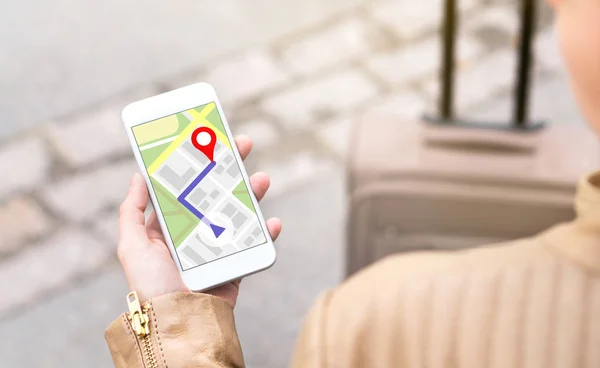
Legitimate hotels exist at real, physical addresses that you can verify through maps and street view applications. Check if the address listed on the hotel website exists and matches what you see in online maps and local business directories.
Scammers sometimes use fake addresses, addresses of completely different businesses, or vague location descriptions without specific street addresses. You should be able to find the hotel’s location on Google Maps, see photos of the actual building, and verify that it matches the hotel’s claimed location.
If the address seems suspicious or you can’t find any trace of the property at that location, don’t book.
No direct confirmation from the actual hotel
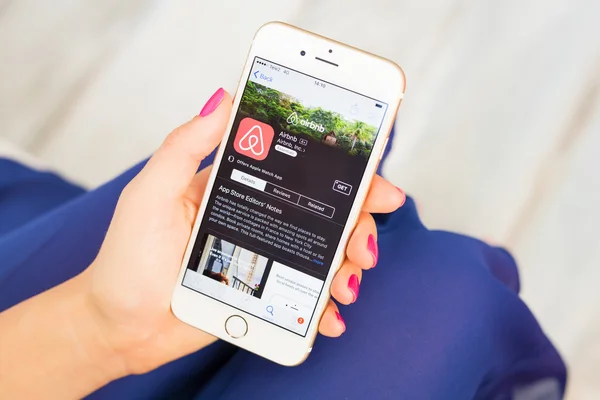
When you make a legitimate hotel reservation, you should be able to call the hotel directly and have them confirm that your booking exists in their system. The hotel has no record of your reservation. The confirmation came from a third-party site you’ve never heard of that isn’t actually affiliated with the property.
This is one of the clearest signs you’ve been scammed — if you call the hotel using their official phone number and they have no record of your booking, you’re dealing with a fraudulent site. Real booking confirmations will include reference numbers that the hotel can look up, and the staff should be able to confirm your dates, room type, and rate.
Always verify important bookings by calling the hotel directly, especially if you booked through a third-party site.
Like Travel Pug’s content? Follow us on MSN.
Multiple overlapping bookings or strange patterns

Professional scammers sometimes create patterns of fake bookings that don’t make logical sense for real travelers. This is when you get bookings for your hotel that all perfectly follow one another, like a one-night booking from January 1 to January 2, followed by another that runs from January 2 to January 3, and so on.
There’s usually no reason why a traveler would do this instead of making one longer reservation. If you notice you’ve somehow made multiple bookings for the same dates, or bookings that overlap in impossible ways, this could indicate you’ve fallen victim to a scam that’s trying to extract multiple payments from you.
Real booking systems prevent you from accidentally double-booking, so these patterns are often signs of fraudulent activity.
They refuse to provide clear contact information

Legitimate hotels are proud to share their contact information and want customers to be able to reach them easily with questions or concerns. If you receive any suspicious communication, go directly to the website and log into your account to verify any claims rather than using contact information provided in suspicious emails.
Scammers, on the other hand, often hide behind fake customer service numbers, use only email contact, or provide phone numbers that don’t actually connect to the property they claim to represent. A real hotel should have a physical address, a working phone number that connects to their front desk, and official email addresses that use the hotel’s domain name.
If they’re evasive about providing this basic information or their contact details don’t match what’s listed on official hotel websites, stay away.
When red flags become reality checks

The hotel booking landscape has definitely gotten trickier over the years, but that doesn’t mean you should avoid online booking altogether. 55 million hotel booking scams are perpetrated against unsuspecting consumers each year, according to industry reports, but millions more bookings happen safely every day.
The key is developing a healthy skepticism and taking a few extra minutes to verify before you book. Trust your instincts — if something feels off about a website, deal, or communication, it probably is.
Remember that legitimate hotels want your business and will be transparent about their policies, pricing, and contact information, while scammers rely on pressure tactics and confusion to separate you from your money.
Like Travel Pug’s content? Follow us on MSN.
More from Travel Pug

- 20 Best Beach Towns in the Carolinas
- 13 Destinations Where Tourists Regularly Regret Their Trip
- 20 Things You Actually Get in First Class
- 20 Small Airports With Aviation Museums
- 20 Places in the U.S. That Are Perfect for a Reset Trip
Like Travel Pug’s content? Follow us on MSN.
